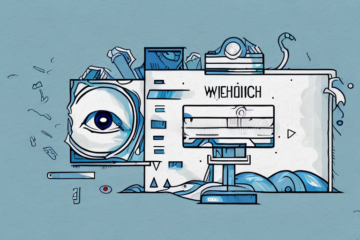Interstitial nephritis is a type of kidney inflammation that affects the tissues between the kidney tubules. This condition can cause damage to the kidneys and renal failure if not properly identified and treated in time. This article will guide you through everything you need to know about interstitial nephritis – from its definition, to its causes, symptoms, diagnosis, treatment, and long-term outlook.
Defining Interstitial Nephritis: What You Need to Know
Interstitial nephritis is a type of inflammation that occurs in the connective tissue between the nephrons, the tiny filtering units within the kidneys. This condition can be caused by a variety of factors, including allergic reactions to medication, infections, autoimmune disorders, and exposure to environmental toxins. Interstitial nephritis is more common in adults than in children, and can be a chronic or acute condition.
One of the most common symptoms of interstitial nephritis is a decrease in urine output, which can lead to dehydration and electrolyte imbalances. Other symptoms may include fever, fatigue, nausea, vomiting, and swelling in the legs and ankles. In some cases, interstitial nephritis can progress to kidney failure, which may require dialysis or a kidney transplant.
Treatment for interstitial nephritis depends on the underlying cause of the inflammation. In cases where the condition is caused by medication, the offending drug may need to be discontinued. Antibiotics may be prescribed for cases caused by infections, while corticosteroids may be used to reduce inflammation in cases caused by autoimmune disorders. Lifestyle changes, such as avoiding exposure to environmental toxins, may also be recommended to prevent further damage to the kidneys.
Understanding the Anatomy of the Kidney
In order to fully comprehend interstitial nephritis, it is important to have a basic understanding of the anatomy of the kidney. The kidneys are two small organs located on either side of the spine, and they play a crucial role in filtering waste products from the bloodstream. Each kidney contains approximately one million nephrons, which are responsible for filtering blood and producing urine. The interstitial tissue surrounds the nephrons and is responsible for maintaining structural integrity.
Additionally, the kidneys also play a vital role in regulating blood pressure and producing hormones that stimulate the production of red blood cells. The renal artery brings blood to the kidneys, where it is filtered and waste products are removed. The filtered blood then returns to circulation through the renal vein. Understanding the complex functions of the kidney is essential in diagnosing and treating various kidney diseases, including interstitial nephritis.
Common Causes of Interstitial Nephritis
Interstitial nephritis can be caused by a variety of factors, including certain medications, infections, autoimmune disorders, and exposure to environmental toxins. Some of the most common causes of interstitial nephritis include nonsteroidal anti-inflammatory drugs (NSAIDs), antibiotics, proton pump inhibitors, herbal supplements, and infections such as pyelonephritis and tuberculosis.
In addition to the aforementioned causes, interstitial nephritis can also be caused by certain medical conditions such as sarcoidosis, Sjogren’s syndrome, and systemic lupus erythematosus. It is important to note that in some cases, the cause of interstitial nephritis may not be identified.
Medications that Trigger Interstitial Nephritis
While certain medications can help treat conditions like infections and inflammation, they can also cause interstitial nephritis as a side effect. NSAIDS such as ibuprofen, naproxen, and aspirin, antibiotics such as penicillin and sulfonamides, and proton pump inhibitors such as omeprazole and lansoprazole have all been known to trigger interstitial nephritis. Herbal supplements such as echinacea and kava have also been associated with this condition.
It is important to note that not everyone who takes these medications will develop interstitial nephritis. However, those who are at a higher risk include older adults, those with pre-existing kidney disease, and those who take these medications for a prolonged period of time.
Symptoms of interstitial nephritis may include fever, rash, nausea, vomiting, and swelling in the legs or feet. If you are experiencing any of these symptoms while taking any of the medications mentioned above, it is important to speak with your healthcare provider immediately.
Who is at Risk for Developing Interstitial Nephritis?
Anyone can develop interstitial nephritis, but certain factors can increase the risk of developing the condition. Those who take NSAIDs or antibiotics on a regular basis are at a higher risk, as well as those who have a history of allergies. Furthermore, those with autoimmune disorders such as lupus or Sjogren’s syndrome are also at an increased risk of developing interstitial nephritis.
Other factors that may increase the risk of developing interstitial nephritis include age, gender, and certain medical conditions such as diabetes and high blood pressure. Additionally, exposure to certain toxins and chemicals, such as heavy metals and pesticides, may also increase the risk of developing interstitial nephritis.
Symptoms of Interstitial Nephritis: What to Look Out For
The symptoms of interstitial nephritis can vary from person to person and depend on the duration and severity of the condition. Some common symptoms include fever, fatigue, nausea, vomiting, swelling in the legs, and reduced urine output. Additionally, patients may experience blood in their urine, an increase in blood pressure, and swelling of the face or limbs. Patients who experience any of these symptoms should contact their doctor immediately.
It is important to note that some patients with interstitial nephritis may not experience any symptoms at all. This is why routine kidney function tests are recommended for individuals who are at risk of developing the condition, such as those with a history of autoimmune disorders or certain medications. Early detection and treatment of interstitial nephritis can help prevent further damage to the kidneys and improve overall health outcomes.
Diagnosing Interstitial Nephritis: Tests and Procedures
In order to diagnose interstitial nephritis, a doctor will perform a physical exam and review the patient’s medical history. Blood and urine tests may be ordered to assess the kidney function and check for infection or inflammation. A biopsy of the kidney may also be needed in some cases. Imaging tests such as CT scans may be utilized to evaluate the structure of the kidneys and identify any abnormalities.
Additional tests that may be used to diagnose interstitial nephritis include a renal ultrasound, which uses sound waves to create images of the kidneys, and a renal scan, which involves injecting a small amount of radioactive material into the bloodstream to evaluate kidney function. In some cases, a cystoscopy may be performed to examine the bladder and urethra for any signs of inflammation or infection.
It is important to note that the symptoms of interstitial nephritis can be similar to those of other kidney disorders, such as glomerulonephritis or pyelonephritis. Therefore, a thorough evaluation and accurate diagnosis are crucial for effective treatment and management of the condition.
Complications Associated with Interstitial Nephritis
Interstitial nephritis can lead to many complications if left untreated, including acute renal failure and chronic kidney disease. These conditions may require dialysis or a kidney transplant, which can significantly reduce a person’s quality of life. Patients with interstitial nephritis are also at a higher risk of developing infections, especially if they have a weakened immune system.
It is important to note that interstitial nephritis can be caused by a variety of factors, including certain medications, infections, and autoimmune disorders. Therefore, identifying and treating the underlying cause is crucial in preventing further complications. In some cases, simply discontinuing the medication or treating the infection can lead to a full recovery. However, if left untreated, interstitial nephritis can progress and cause irreversible damage to the kidneys, leading to end-stage renal disease.
Treating Interstitial Nephritis: Medications and Therapies
The treatment of interstitial nephritis will depend on its underlying cause and the severity of the condition. In most cases, medications such as corticosteroids and immunosuppressant drugs may be prescribed to reduce inflammation and minimize damage to the kidneys. Patients may also be advised to reduce their intake of NSAIDs and other medications that may have triggered the condition. If an infection is the cause, antibiotic therapy may be prescribed to remedy the situation.
In addition to medication, lifestyle changes may also be recommended to manage interstitial nephritis. Patients may be advised to maintain a healthy diet, exercise regularly, and avoid smoking and excessive alcohol consumption. It is also important to monitor kidney function regularly through blood and urine tests to ensure that the treatment is effective and to detect any potential complications early on. In severe cases, dialysis or kidney transplant may be necessary.
Lifestyle Changes to Manage Interstitial Nephritis
Patients with interstitial nephritis can make certain lifestyle changes to help manage their symptoms, including reducing sodium intake, getting regular exercise, and staying hydrated. Patients should also avoid smoking and drinking alcohol, which can exacerbate kidney disease. It may be helpful to work with a registered dietician to ensure a balanced diet that does not include the foods which are harmful to the kidneys.
In addition to lifestyle changes, medication may also be prescribed to manage interstitial nephritis. This may include corticosteroids to reduce inflammation in the kidneys or immunosuppressants to suppress the immune system and prevent further damage to the kidneys.
It is important for patients with interstitial nephritis to regularly monitor their kidney function through blood and urine tests. This can help detect any changes or progression of the disease and allow for early intervention. Patients should also communicate any changes in symptoms or side effects of medication to their healthcare provider.
Preventing the Onset of Interstitial Nephritis
The best way to prevent interstitial nephritis is to be aware of the risks and to take precautions in order to avoid the causative factors. Patients should be cautious when taking medications, especially those that have known side effects. It’s important to follow the directions for medication carefully and consult a doctor before taking any new medications. Patients should also practice good hygiene, especially when traveling or exposed to people with infections.
In addition to these precautions, maintaining a healthy lifestyle can also help prevent interstitial nephritis. Eating a balanced diet, staying hydrated, and exercising regularly can all contribute to overall kidney health. It’s also important to manage any underlying medical conditions, such as high blood pressure or diabetes, as these can increase the risk of developing interstitial nephritis. By taking these steps, individuals can reduce their risk of developing this condition and maintain optimal kidney function.
Prognosis and Long-Term Outlook for Patients with Interstitial Nephritis
The prognosis and long-term outlook for patients with interstitial nephritis largely depends on the underlying cause and the patient’s response to treatment and lifestyle changes. Those with chronic kidney disease will likely need ongoing medical care, including dialysis or kidney transplant. However, with proper diagnosis and treatment, many patients can experience an improvement in kidney function and quality of life.
If you are experiencing any symptoms of interstitial nephritis or have concerns about your kidney health, please speak to your healthcare provider. Early diagnosis and treatment of interstitial nephritis can help prevent irreversible damage to the kidneys and improve overall outcomes.
It is important to note that interstitial nephritis can be caused by a variety of factors, including medications, infections, and autoimmune disorders. Identifying and addressing the underlying cause is crucial for successful treatment and management of the condition.
In addition to medical treatment, lifestyle changes such as maintaining a healthy diet, staying hydrated, and avoiding certain medications can also help improve kidney function and prevent further damage.










